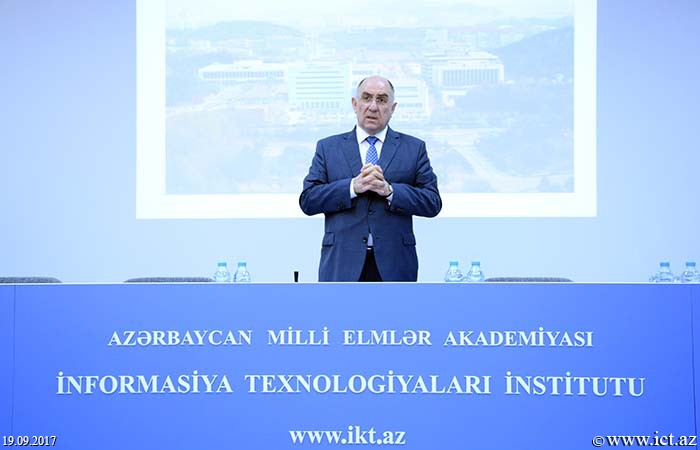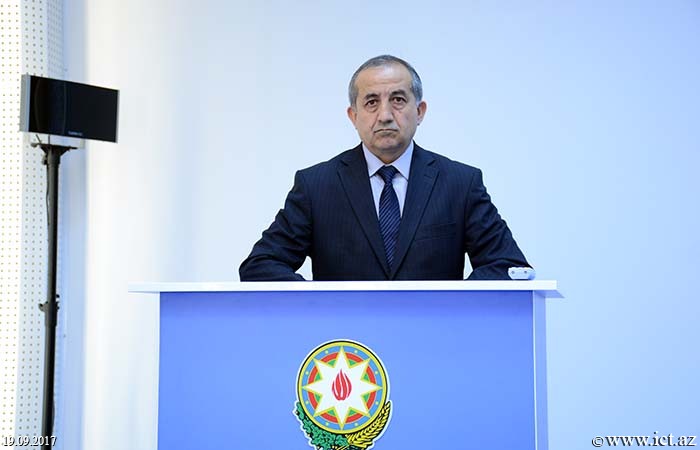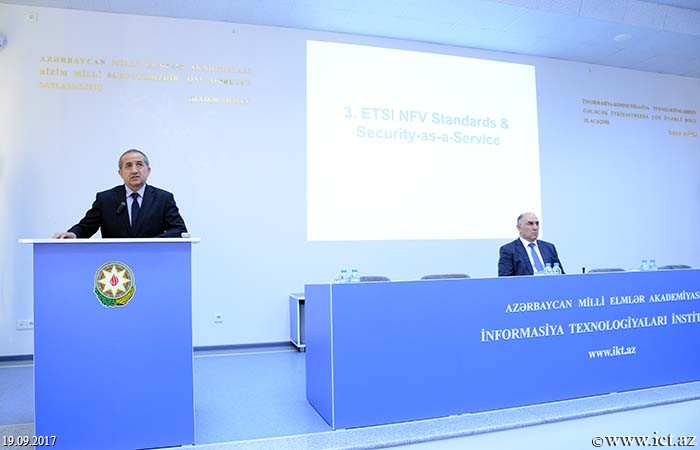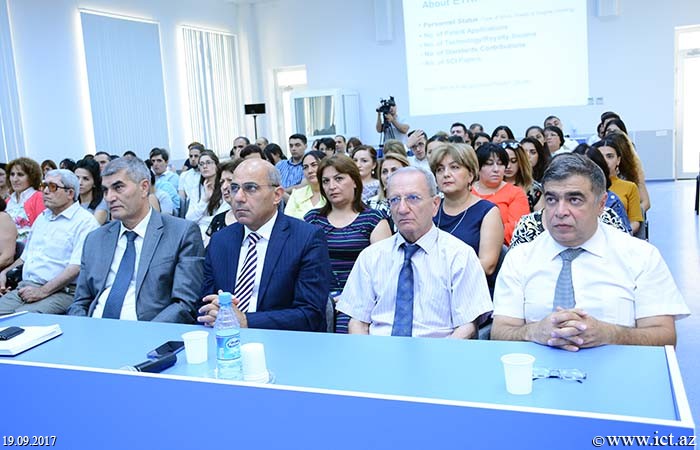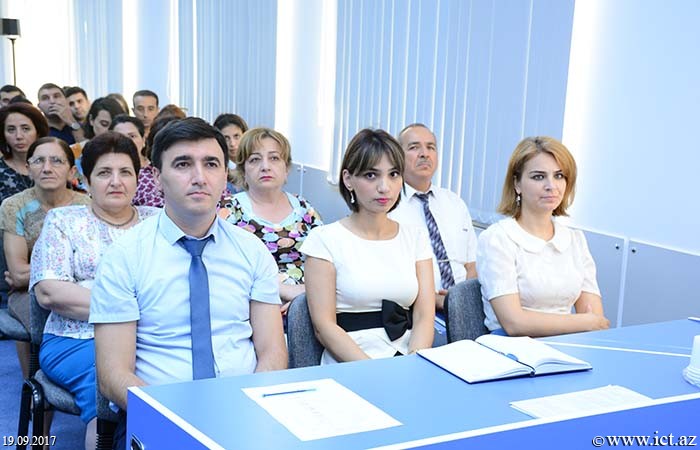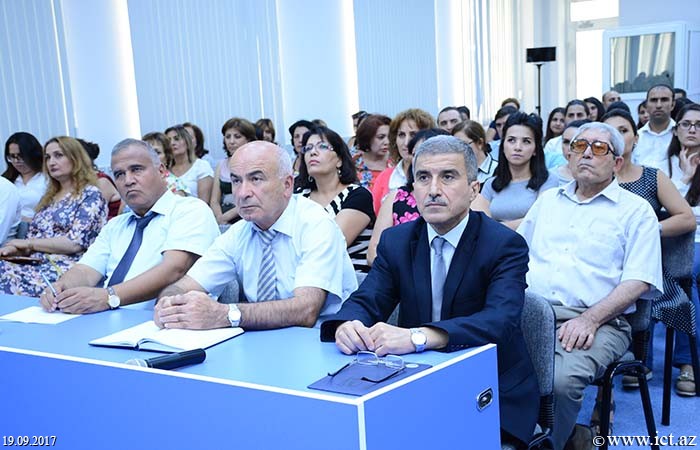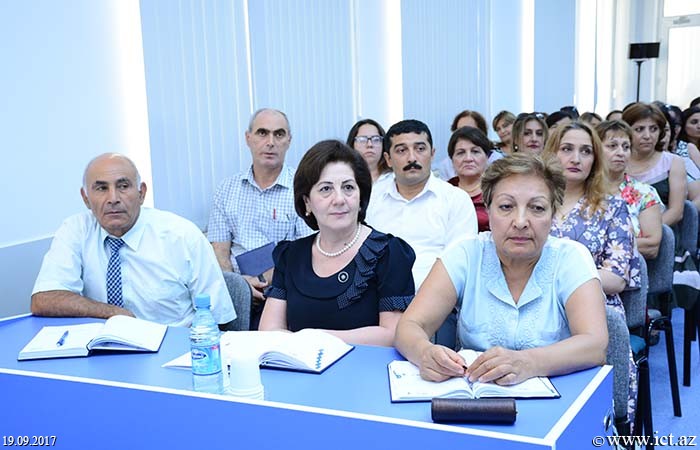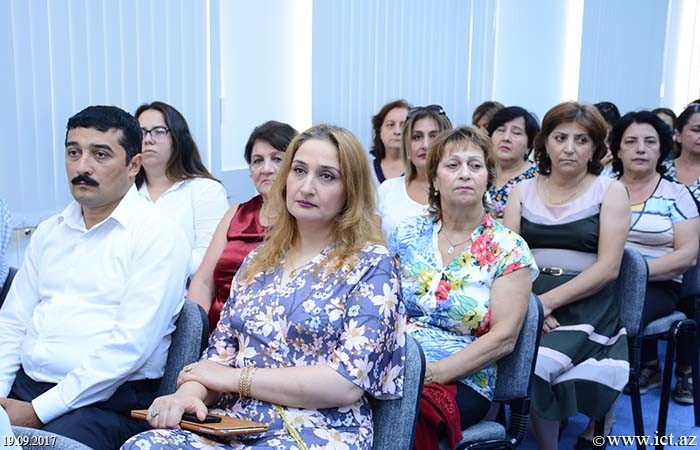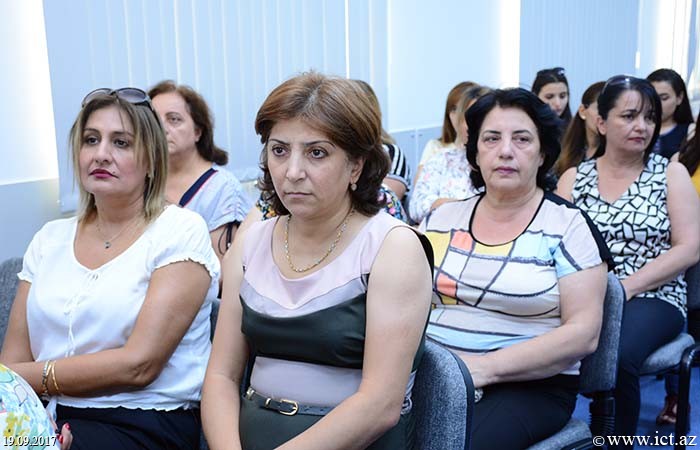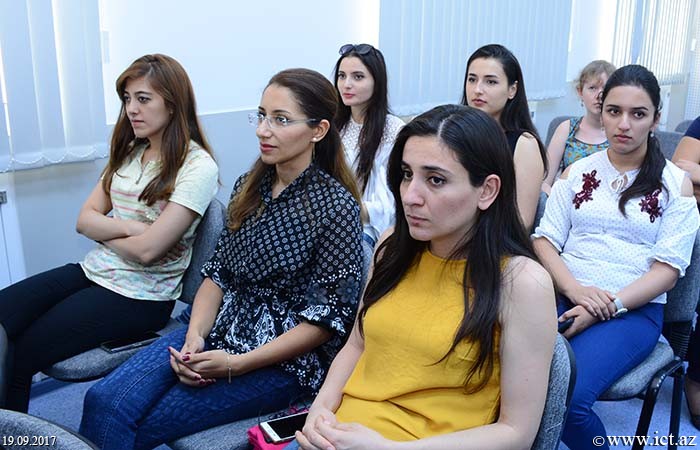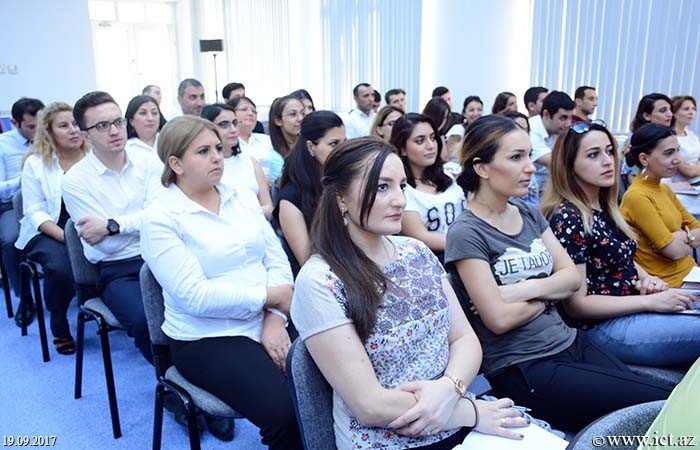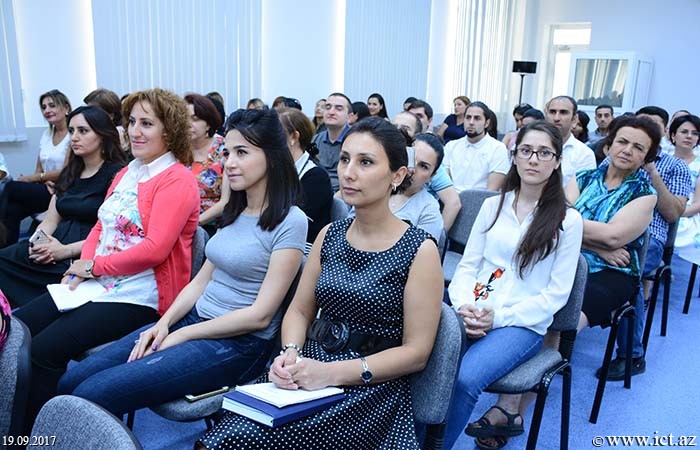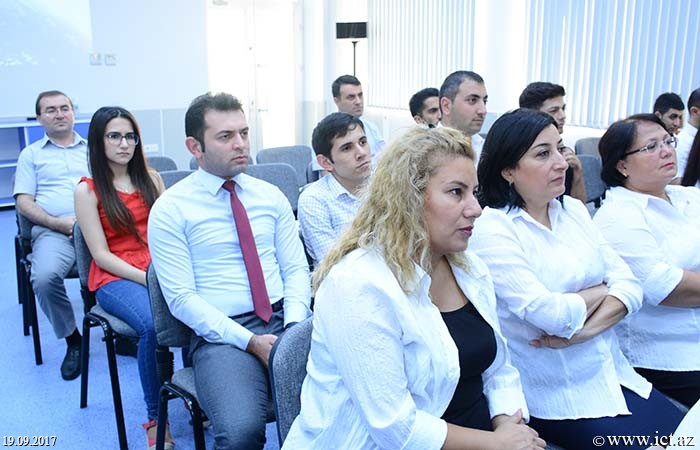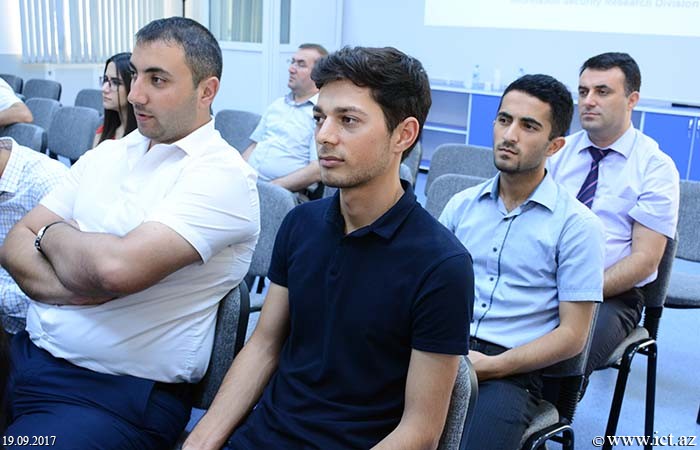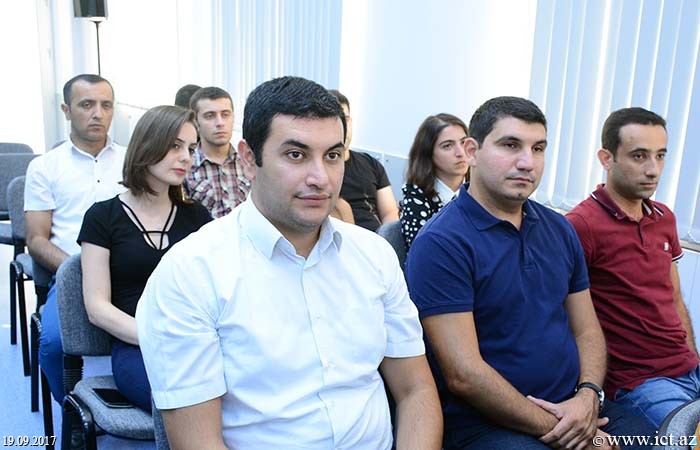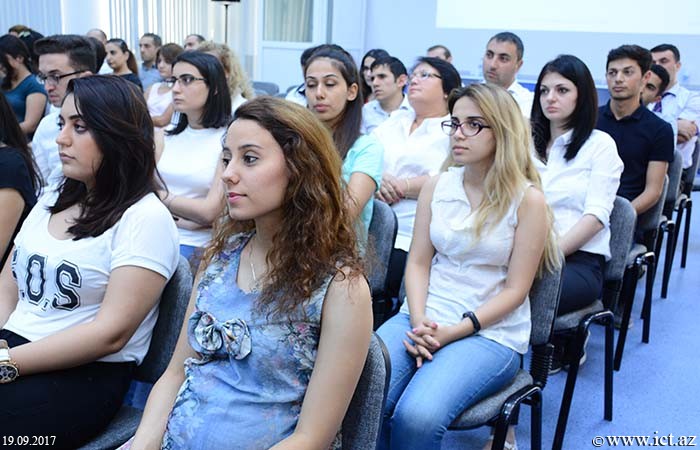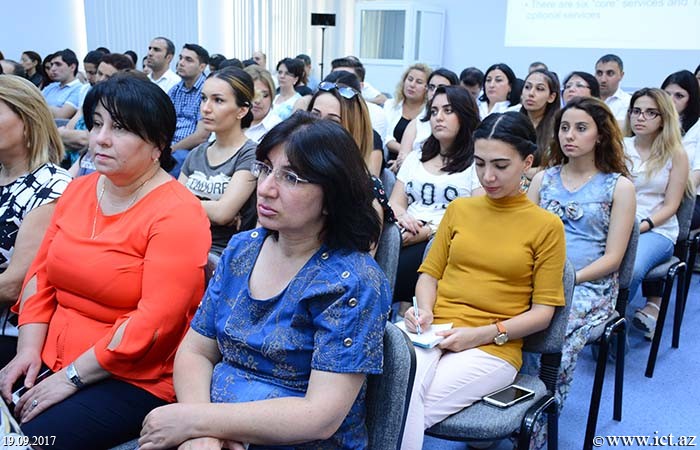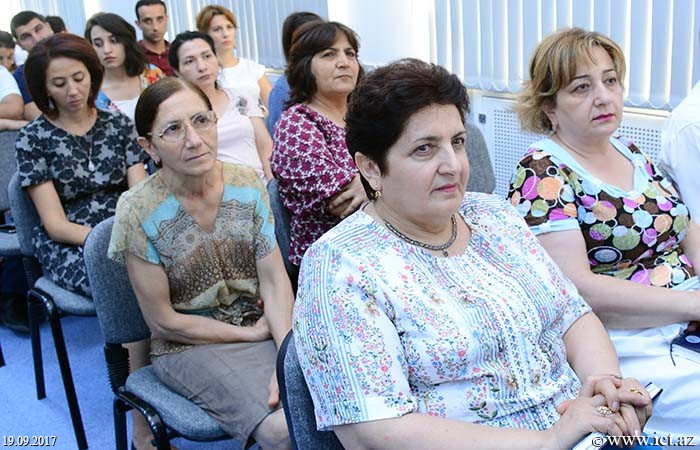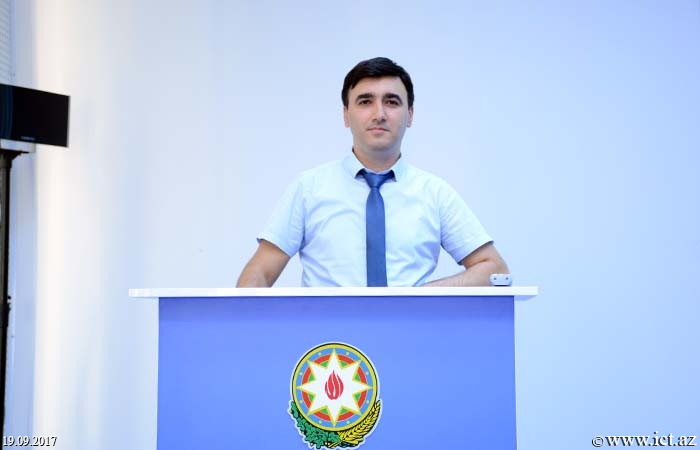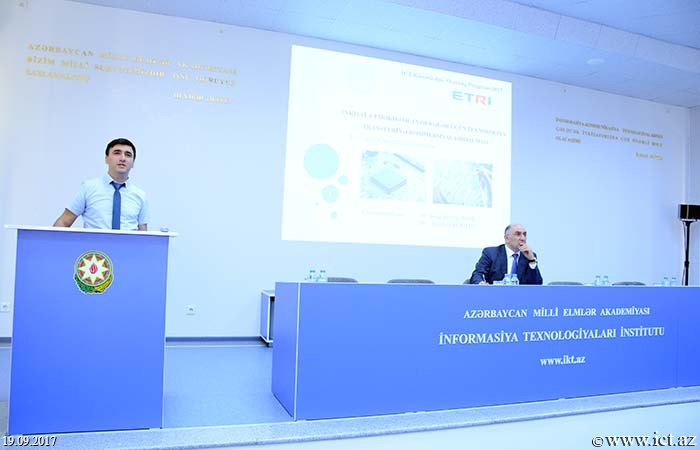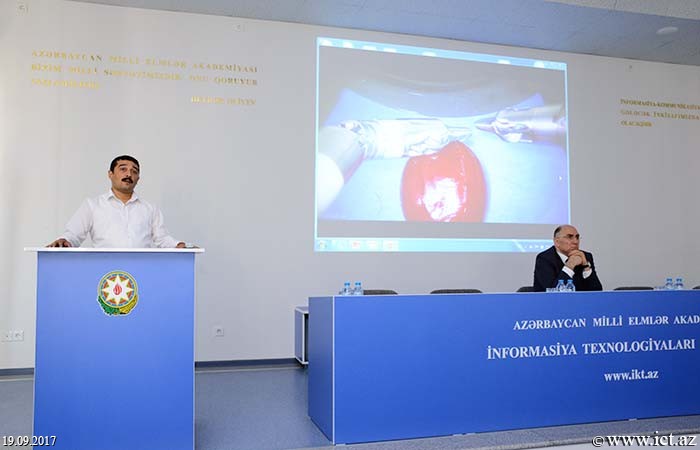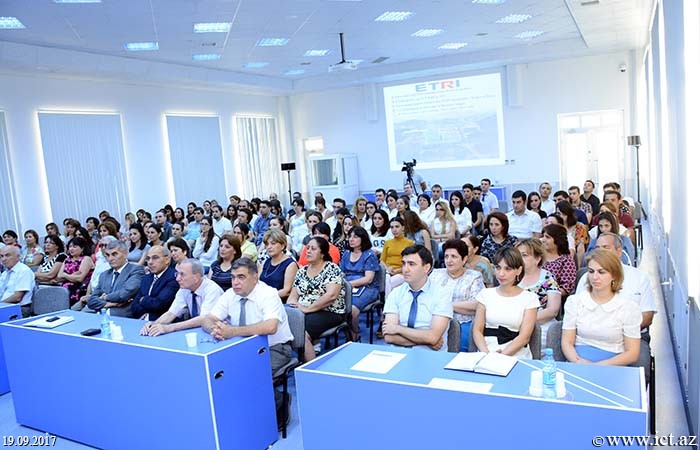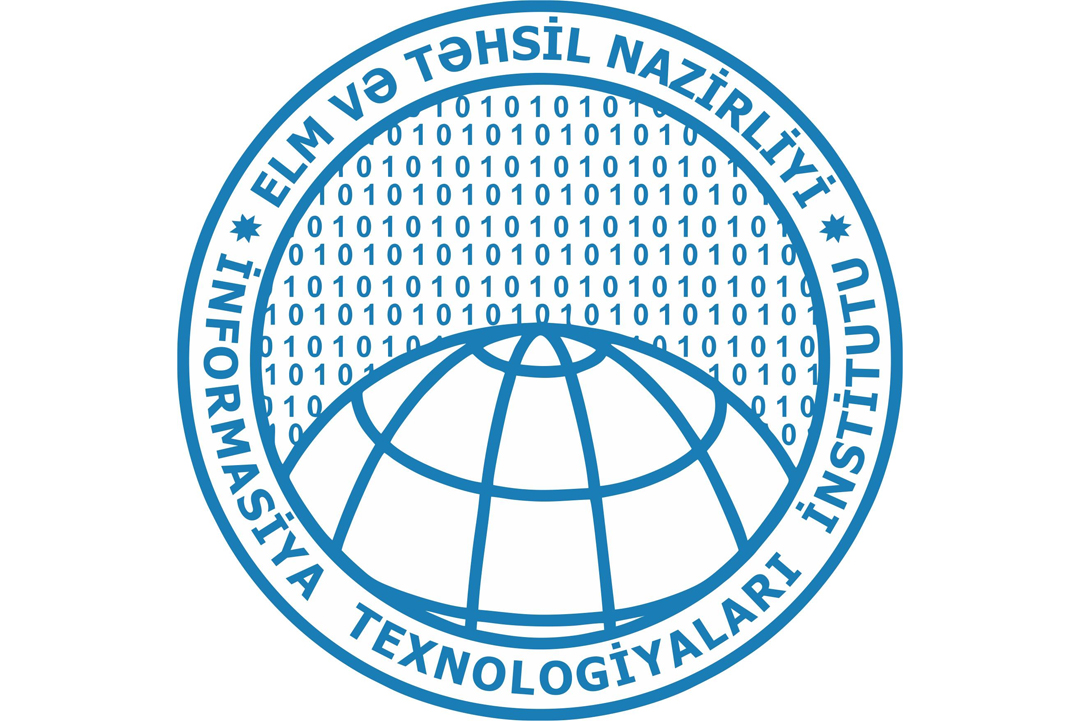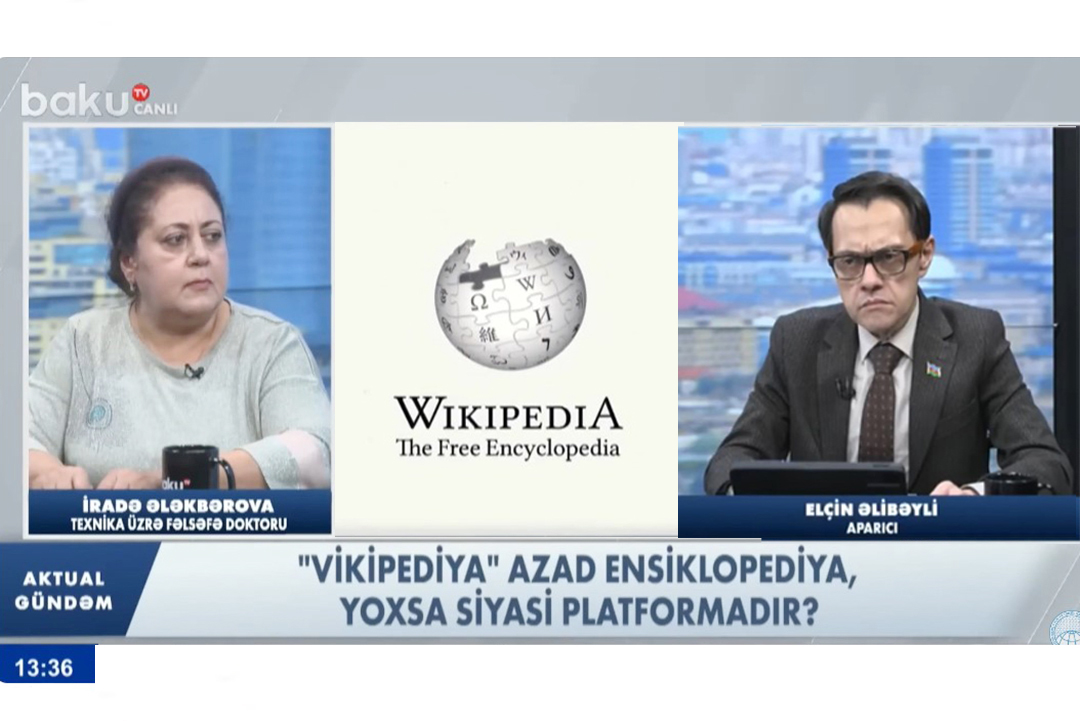NEWS
Colleagues of institute were on a scientific mission
The next meeting of the scientific seminar of the Institute of Information Technologies of ANAS was held. Academician-secretary of ANAS, director of the institute, academician Rasim Alguliev informed the participants on the agenda. The event was dedicated to the reports of the head of the department, PhDs, associate professors Yadigar Imamverdiyev and Farhad Yusifov on their participation in a 2-month internship program at the South Korean Electronic and Telecommunications Research Institute (ETRI).
Presently, R. Alguliev, who has been cooperating with various scientific research institutes of South Korea, including the Advanced Science and Technology Institute (KAIST), has called on young researchers at the institute to practice in these scientific institutions.
Then Y. Imamverdiyev informed about the results of the research on the theme "Development of adaptive intelligent information security services on the cloud" held at ETRI within the ICT exchange program. He said that an ETRI research project aims to develop an autonomous security platform and system technologies to provide users with optimized security services to analyze and respond to cyber-attacks in specific environments such as the Internet, the cyber-physical systems, and the e-government infrastructure. Information security infrastructure with adaptive configuration and management of dynamic change cyber threats and user requirements, information security infrastructure with cyber-attacks and self-defence mechanisms Virtualization of network functions, cloud computing, software management with new approaches in telecommunication, network and data intelligence analysis synthesized on the basis of the network technology. It also envisages collecting data from different sources to detect large-scale, coordinated, and targeted cyber-attacks on the Big Data platform, and the development of technologies for intellectual analysis based on a profound learning approach.
At the same time, with the introduction of advanced artificial intelligence and high-performance computing technologies, proposals were made on joint research activities in the field of cybersecurity, joint scientific personnel training, development of educational and training programs in the relevant fields.
Presenting the report on "Technology transfer and commercialization for developing countries", Yusifov gave detailed information about ETRI. He said that the main purpose of this organization is to develop new knowledge and technologies in the field of information technologies, electronics, and telecommunications, and to train highly qualified specialists in these areas. Of the 2034 employees of ETRI, 92% are researchers, technical staff and 8% administrative staff.
According to him, according to the UN e-government development report for 2010, 2012 and 2014, South Korea has been ranked 1st in the e-government development index. The country envisages transferring about 60% of e-government services to cloud computing this year.
Speaking about the technology transfer experience in Taiwan, the reporter noted that the successful implementation of technology transfer to create local innovation and stimulate industrial development in the country has led to great development. Taiwan's semiconductor industry is a maturity phase, microchip development, computer industry development, transfer of knowledge and research.
According to the speaker, Argentina is one of the first countries to launch biotechnology and applications in many products. Local biotechnology companies focus mainly on human health and agriculture. The widespread use of biotechnologies in the country has been made possible due to local research, direct investment abroad, the establishment of special biotechnology companies and other destinations.
He also provided information on the establishment of ICT cooperation relations between the Institute of Information Technologies of ANAS and ETRI, technology transfer research, development strategy, technology transfer and technological opportunities for developing countries.
Then, an employee of the institute Ariz Aliyev made a report on ICT innovations. The reporter, "Robot-surgeon Da Vinci," pointed out that this robot allows the medicine to conduct effective operations in various areas requiring minimal interference and maximum precision. He noted that with the help of a universal robot surgeon it is possible to carry out various operations in any organ.
A. Aliyev presented "fungi mutation" fungus, which is one of the main problems of the modern era, which allows eliminating plastic wastes. According to him, these mushrooms are kept under laboratory conditions, ultraviolet rays, and plastic materials with toxic content are placed on it. Within a few weeks, these ingredients are converted into organic substances and can be eaten by adding different additives.
He has also featured a 3D video on 3D simultaneous printers, artificial organs for various surgical experiments, biometric technologies used in Australian airports in 2019, synchronous translation device with Japanese, Korean and English languages.
Discussions were held around the reports, questions were answered.
© All rights reserved. Citing to www.ict.az is necessary upon using news

